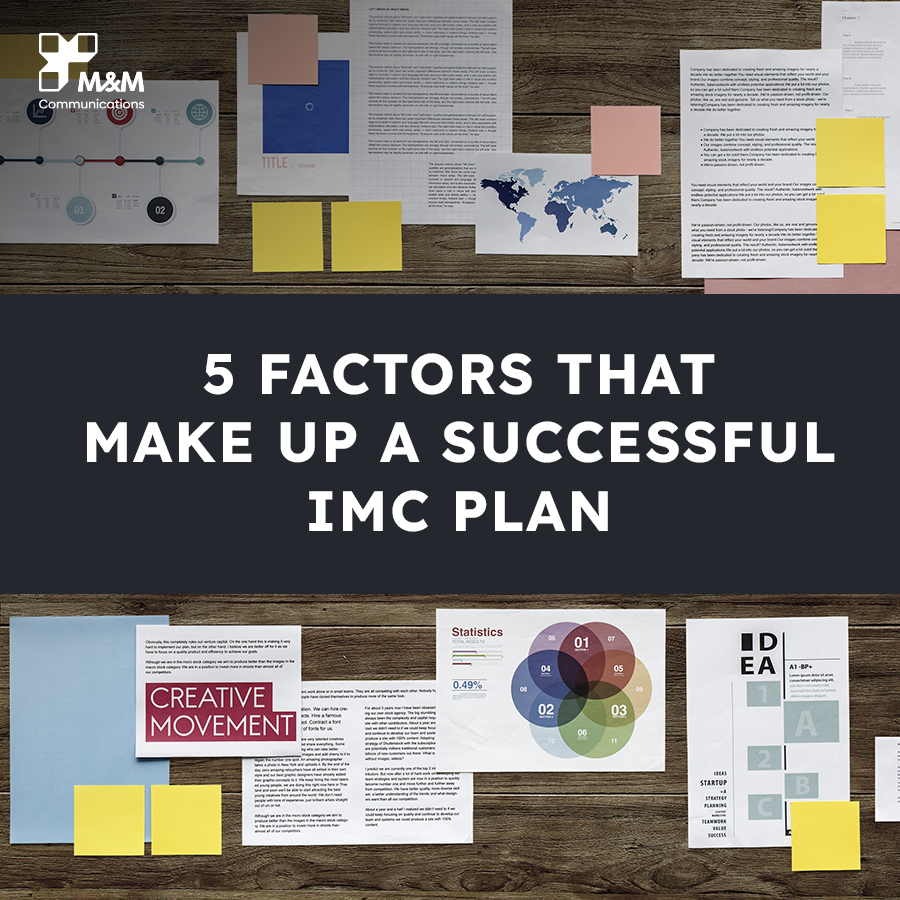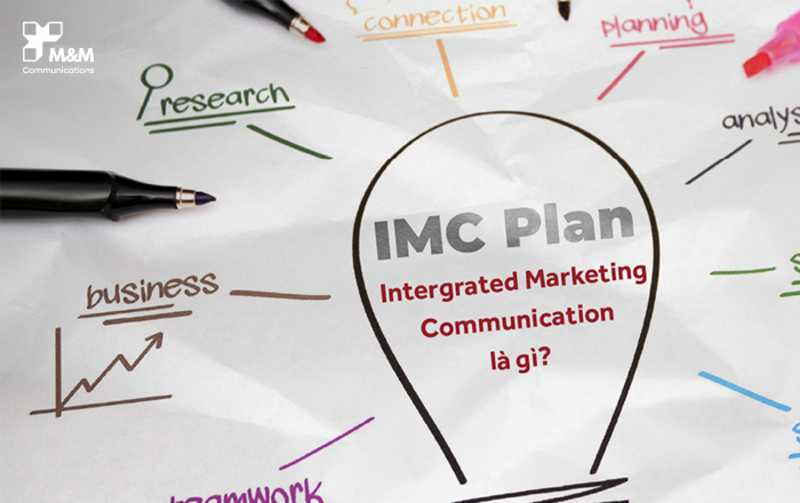
5 FACTORS THAT MAKE UP A SUCCESSFUL IMC PLAN
In an increasingly competitive market, effectively conveying brand messages becomes a decisive factor for business success. An IMC Plan will help businesses build a synchronous strategy across multiple communication channels to create a strong impact on target customers.
But what makes a truly effective IMC Plan? Let's explore with M&M Communications the 5 core elements that make an IMC plan successful.
Defining IMC Plan
IMC Plan (Integrated Marketing Communications Plan) is an overall marketing strategy in which communication tools such as advertising, PR, digital marketing, events, and personal selling are closely combined to convey a consistent message to customers. An IMC plan not only helps optimize your marketing budget but also increases your reach and makes a lasting impression on your target audience.

>>> The role of IMC Plan in Branding
The Importance of the IMC Plan
IMC Plan plays an important role in:
Creating a consistent brand image across all media platforms.
Optimizing budgets by effectively combining marketing tools.
Increasing customer recognition and impact, promoting purchasing behavior.
Building customer loyalty through consistent messages and appropriate outreach strategies.
>>> 6 IMC Plan which marketers should not ignore
5 Factors that make an IMC Plan successful
Clearly define goals and target audiences
Each IMC plan needs to have specific, measurable, feasible, realistic, and time-bound (SMART) goals. At the same time, researching and identifying the right target audience helps brands convey the right message, increasing outreach effectiveness.
Consistent and Clear Message
Communication messages must be built in a coherent, memorable, and consistent way across all communication channels. Consistency in the way of communication helps the brand build trust and connect more deeply with customers.

Choose the right communication channel
The choice of communication channels must be based on customer behavior. Channels can include:
- Traditional: TV, newspapers, radio, events.
- Digital: Social media, SEO, email marketing, online advertising.
- Direct: Seminars, exhibitions, public relations (PR).

Integrate and coordinate communication tools effectively
A successful IMC plan requires a close connection between marketing tools to create a resonance effect. For example, social media advertising can lead users to the website to learn more, thereby creating direct sales opportunities.
Continuously measure and adjust the strategy
Monitoring the effectiveness of the IMC Plan is an important factor to help businesses optimize the campaign. Use indicators such as ROI (Return on Investment), engagement level, and conversion rate to evaluate and adjust the plan in real-time.
With the above 5 factors, your business can proceed to deploy and execute an IMC plan. However, to get the expected results, your business needs a lot of potential in terms of time, people, as well as knowledge to be able to apply the above 5 factors correctly and best.
If your business is in need of support, M&M Communications is always ready to become a partner to help you from planning to implementation and measurement to achieve the most desired results.
Conclusion
An integrated marketing communications plan (IMC Plan) helps businesses optimize their budget and ensures that the brand message is conveyed strongly, consistently, and effectively. Applying five key elements – defining clear goals, building consistent messages, choosing the right communication channels, integrating marketing tools, and measuring effectiveness – will help businesses create a successful and sustainable marketing strategy. Are you ready to build an effective IMC Plan?
